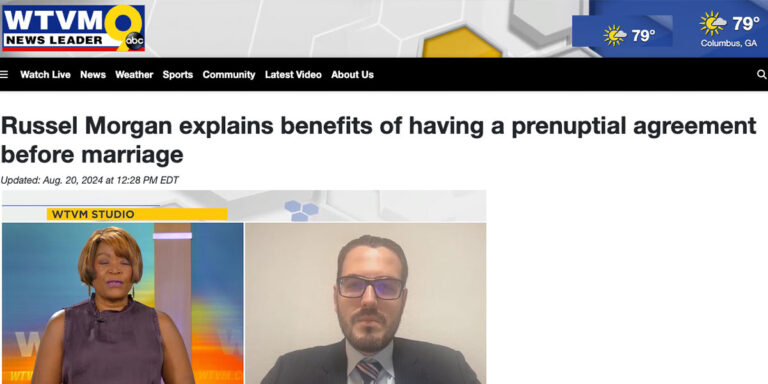Primary Estate Planning Documents You Should Have
Estate planning is an essential aspect of financial management, especially in New York, where state-specific laws can significantly impact how your assets are managed and distributed. At Morgan Legal Group, located in New York City, we specialize in providing comprehensive estate planning services to ensure that your wishes are honored and your loved ones are protected. Whether you are just beginning to think about estate planning or need to update your existing plan, having the right documents in place is crucial. This guide covers the primary estate planning documents every individual should have to secure their legacy.
1. Last Will and Testament
A Last Will and Testament is perhaps the most well-known estate planning document. It outlines how your assets will be distributed upon your death, names beneficiaries, and designates an executor to oversee the distribution process. In New York, having a valid will is essential because, without it, your estate will be distributed according to the state’s intestacy laws, which may not align with your wishes. A will also allows you to appoint guardians for minor children, ensuring they are cared for by individuals you trust.
Key Components of a Will
- Executor: The person you designate to manage your estate, pay debts, and distribute assets.
- Beneficiaries: Individuals or organizations who will receive your assets.
- Guardianship Provisions: Assigns guardians for minor children or dependents.
- Specific Bequests: Details specific gifts of property or money to named beneficiaries.
2. Revocable Living Trust
A Revocable Living Trust is an effective tool for avoiding probate and managing your assets during your lifetime. By transferring your assets into a trust, you retain control over them as the trustee and can make changes as needed. Upon your death, the assets in the trust are distributed according to the terms you have set, bypassing the often lengthy and costly probate process. This document provides flexibility and privacy, which are not typically available with a will alone.
Advantages of a Revocable Living Trust
- Avoids probate, saving time and costs.
- Maintains privacy since trust documents are not public record.
- Allows for seamless management of your assets if you become incapacitated.
- Provides specific instructions for asset distribution.
3. Durable Power of Attorney
A Durable Power of Attorney (POA) is a critical document that allows you to designate an agent to make financial decisions on your behalf if you are unable to do so. This can include managing bank accounts, paying bills, and handling investments. In New York, the POA remains in effect even if you become incapacitated, ensuring that your financial matters are managed without the need for a court-appointed guardian. Choosing a trusted individual to act as your agent is crucial, as they will have broad authority over your financial affairs.
Choosing the Right Agent
- Select someone trustworthy and capable of managing financial matters.
- Ensure the agent understands your wishes and is willing to act in your best interest.
- Consider appointing a backup agent in case your primary choice is unavailable.
4. Health Care Proxy and Living Will
Health Care Proxy and Living Will are essential documents that address your medical care preferences. A Health Care Proxy allows you to appoint someone to make medical decisions on your behalf if you are incapacitated, while a Living Will outlines your wishes regarding life-sustaining treatment and end-of-life care. In New York, these documents ensure that your health care preferences are respected and relieve your loved ones from making difficult decisions without guidance.
Key Points of a Health Care Proxy and Living Will
- Health Care Proxy: Designates a trusted individual to make medical decisions on your behalf.
- Living Will: Specifies your wishes regarding life support, resuscitation, and other medical interventions.
- Flexibility: Allows for updates as your health care preferences evolve.
5. Beneficiary Designations
Beneficiary designations are often overlooked but are critical to your estate plan. Many assets, such as life insurance policies, retirement accounts, and payable-on-death accounts, allow you to name beneficiaries directly. These designations override instructions in your will, making it vital to ensure they are current and align with your overall estate plan. Regularly reviewing and updating beneficiary designations can prevent disputes and ensure that your assets go to the intended recipients.
Types of Accounts with Beneficiary Designations
- Life insurance policies
- Retirement accounts (401(k), IRA)
- Payable-on-death bank accounts
- Transfer-on-death investment accounts
6. Letter of Intent
A Letter of Intent is a personal document that can provide guidance beyond legal directives. It may include your wishes for the distribution of specific items, instructions for your funeral arrangements, or personal messages to your loved ones. While not legally binding, a Letter of Intent can offer valuable insight into your personal desires and provide comfort to your family during a challenging time.
Using a Letter of Intent Effectively
- Include personal messages or specific wishes not covered by other documents.
- Outline special instructions for sentimental items or family heirlooms.
- Update regularly to reflect any changes in your preferences.
7. Digital Assets Inventory
In today’s digital age, many individuals have significant digital assets, such as online banking accounts, social media profiles, and digital media. A Digital Assets Inventory lists your digital accounts and assets, along with instructions for accessing them. This document ensures that your executor or designated representative can manage your digital footprint according to your wishes.
Managing Digital Assets
- Include passwords and login information for key accounts.
- Provide instructions for handling social media profiles and online subscriptions.
- Consider privacy implications and include only necessary details.
Conclusion
Having the right estate planning documents in place is essential for protecting your assets, ensuring your wishes are honored, and providing peace of mind to your loved ones. At Morgan Legal Group, we specialize in helping New Yorkers navigate the complexities of estate planning. From drafting a will to setting up trusts and preparing powers of attorney, our experienced attorneys can guide you through the process to ensure your estate plan is comprehensive and tailored to your needs. Contact us today to schedule a consultation and take the first step towards securing your future.
































